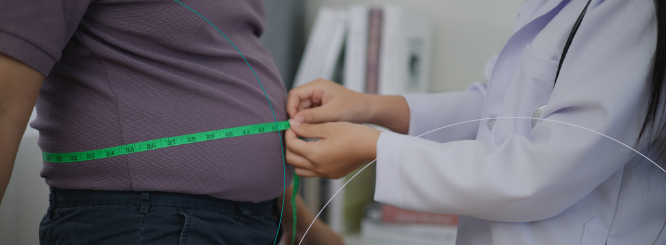
Managing cholesterol is vital for maintaining a healthy heart and one’s overall well-being. Not looking to reduce Cholesterol levels can lead to numerous health issues, such as heart disease, stroke, and peripheral artery disease. Although, with the right strategies it’s very likely to reduce it and keep it within a healthy range. In this blog, we will talk about this condition and understand the health impact it has on individuals, and what are the most effective ways to reduce it.
What is Cholesterol?
Cholesterol is a fat-like substance that is found in the blood. It’s very important for producing certain types of processes such as hormones, vitamin D, and other substances to digest food. While the body does need it to work properly, having an excess amount can cause blockages in the arteries, which can lead to some serious health problems. Cholesterol moves through the blood via lipoproteins, the most usual one being low-density (LDL), known as “bad cholesterol” and also high-density lipoprotein (HDL) which is also frequently heard, as “good cholesterol”.
Why is it Important to Reduce Cholesterol?
Having high levels of LDL can cause plaque buildup in your arteries, which can lead to a condition called atherosclerosis. This thins out the arteries and slows down blood flow, which will increase the risk of certain medical problems such as heart disease, heart attacks, and strokes. Reducing the levels, specifically LDL levels, can greatly lower these risks and improve the heart’s overall health.
How to Reduce Cholesterol: Diet, Exercise, and Lifestyle Changes
One of the most effective ways to reduce these high levels is making a difference in lifestyle changes, mainly in the diet including physical activity. These are some of the best actions one can take to reduce it naturally.
Adopting a Heart-Healthy Diet
Eating foods that have low saturated fat and trans fats can drastically reduce cholesterol. These are some diet changes that can help:
- Increasing fiber intake: Soluble fiber can be found in oats, fruits, vegetables, and legumes, these can reduce LDL levels by binding to it in the digestive system.
- Choose healthy fats: Replacing saturated fats, which can be found in red meat and full-fat dairy products, containing unsaturated fats, like those found in olive oil, nuts, and avocados. All of these previous fats can help reduce levels.
- Limit all cholesterol-rich foods: While dieting you may find that eggs, shellfish, and organ meats have less of an impact on your blood levels, it is a good choice to keep consuming these foods in moderation.
Regular Exercise
Physical activity can improve levels by increasing HDL (good cholesterol) and minimizing LDL. Even just a bit of moderate exercise, like yoga, pilates, taking a walk, biking, or swimming can make a drastic change.
Maintaining a Healthy Weight
Being overweight or obese can raise LDL levels and lower HDL. Losing the excess weight will greatly aid in reducing these levels in the blood and improving overall heart health. Focusing on gradual, sustained weight loss via a combination of both diet and exercise.
Avoid smoking and Limit Alcohol Consumption
Smoking can lower HDL levels and damage the lining of the blood vessels, which can then turn to plaque buildup. Quitting smoking can help improve these levels and reduce the risk of heart disease. In addition, abusing alcohol consumption can raise these levels. Limiting alcohol intake to moderate levels can contribute to keeping healthy levels.
Cholesterol Treatment Options
When lifestyle changes on their own are just not enough to reduce these levels to a healthy range, medical attention may be necessary. There exist several options for medications that can lower high levels, talking with a medical professional can help determine what treatment options are right for you.
Statins
Statins are one of the most commonly prescribed medications. They block the substances the body needs to make cholesterol, and can help to reduce LDL levels. Statins are also used to help the body reabsorb it from already existing plaques in the artery walls, and so also can reduce the risk of a heart attack or stroke.
Bile Acid Sequestrants
Bile acid sequestrants are another type of treatment that can work in reducing high levels. This medication fuses with bile acids that are formed from cholesterol and prevents the body from reabsorbing it via the intestines. This medication forces the body to use more of the cholesterol to make more bile acids, efficiently minimizing the levels in the blood.
Cholesterols Absorption Inhibitors
This medication can help reduce cholesterol levels by restricting its absorption from foods. The medication works by absorbing the inhibitors inside the intestine, preventing any dietary cholesterol from entering the bloodstream, and thus reducing levels overall.
PCSK9 Inhibitors
PCSK9 inhibitors are a newer kind of medication that can help reduce levels by allowing more LDL to be removed from the blood. This treatment is usually used in patients who are unable to reduce their levels just enough with other treatments or have an underlying genetic condition that causes high levels.
How Quickly Can I Reduce Cholesterol Levels?
Reducing cholesterol in time really depends on several factors, including how high your levels are and the lifestyle changes or treatments you can make. A change in levels can be seen within 4-6 weeks, with diet and exercise, while with medications such as statins, it can lower levels in just a few weeks.
Can Cholesterol be too low?
While it can reduce, it’s important for heart health, having cholesterol levels that are too low can also be an issue. While it is essential for hormone and vitamin D production, very low levels may affect these processes. It is vital to aim for balanced levels instead of focusing on just lowering levels.
Are there any risks with high cholesterol?
If left untreated, high cholesterol can lead to some very serious health issues and complications, including heart attacks, strokes, and peripheral artery disease. If left untreated it can increase the risk of developing atherosclerosis, making plaque build up in the arteries causing hardening, and narrowing the passage of blood.
Yes, many individuals can reduce cholesterol levels through lifestyle changes on their own, for instance improving their diets, intensifying physical activity, and quitting smoking entirely. Some individuals may require additional medication, as well as lifestyle changes to reduce back to normal levels, especially if there are genetic factors involved or other underlying conditions.
Adopting lifestyle changes, eating a heart-healthy diet, daily exercising, and avoiding smoke can effectively reduce the levels. On the other hand for those who need additional help, medications like statins, bile acid sequestrants, and PCSK9 inhibitors can offer patients an effective treatment option. Always consult with a healthcare provider to determine the best treatment plan available for you. By following the guidelines mentioned above, you can reduce your levels and improve your overall health.
Contact
Please contact us if you have any questions or need further information about cholesterol management and the treatments we offer at LIMARP.
Resources
If you wish to learn more or get more information on the subjects try the following websites to understand more about the subject.
- American Heart Association: heart.org
- National Institutes of Health: nih.gov
- Mayo Clinic: mayoclinic.org


